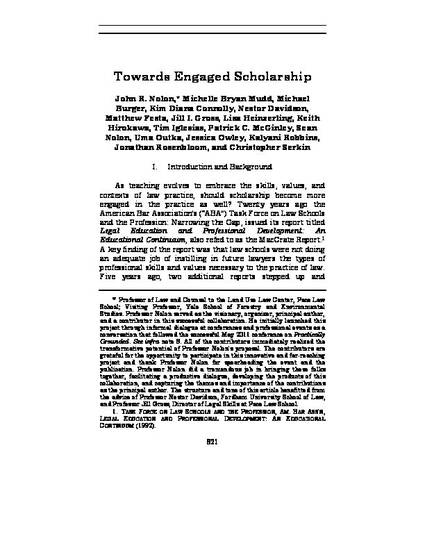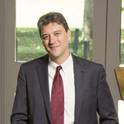
The presenting question for the 2012 Symposium was how can engaged scholarship enhance teaching to prepare students for the legal profession and help to solve the critical problems of the day.12 The event employed a format designed to discover new ways of thinking about engaged scholarship. Each participant was asked to draft and submit in advance brief reflections on this question. At the Symposium, each professor attended seven breakout sessions held throughout the day. At each of these sessions, one participant presented to a small group of professors for ten minutes on her reflections, pinpointing issues, challenges, and themes involved in engaged scholarship; the remaining thirty minutes were spent in discussion with the group led by a facilitator. With three roundtables operating for each of these seven periods, twenty-one sessions were held, enabling each participant to present and to facilitate a forty minute roundtable. Every participant had an opportunity to engage in a small group with all those participating in the Symposium at some point during the day. The breakout sessions were followed by an hour-long wrap up conversation designed to define and discuss the principal issues that participants should address in their final reflections.
Part II of this article synthesizes the critical issues presented at the Symposium. Part III contains the reflections of the Symposium participants—a group of scholars deeply focused on the question of what, exactly, engaged scholarship means in an era of fundamental change in legal education. In Part IV, we conclude with several themes that we recommend for our colleagues’ consideration as they reflect on and move us further toward a clear definition of engaged scholarship.
Available at: http://works.bepress.com/christopher-serkin2/25/
